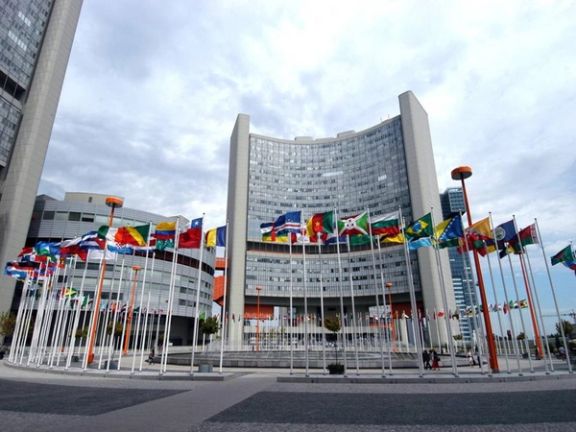US Warns Iran Of Extraordinary IAEA Meeting If It Fails To Cooperate

The United States warned Iran on Thursday that if it fails to fully cooperate with the UN nuclear watchdog, IAEA, its Board must reconvene soon in an extraordinary session.

The United States warned Iran on Thursday that if it fails to fully cooperate with the UN nuclear watchdog, IAEA, its Board must reconvene soon in an extraordinary session.
In a statement presented on the second day of the International Atomic Energy Agency’s board meeting, the US expressed deep disappointment that an eleventh-hour trip by Director General Rafael Grossi to Tehran, the Iranian government failed to resolve outstanding issues.
An extraordinary board meeting can result in censuring Iran; a step that can be a prelude to taking the case to the United Nations Security Council for more serious action against the Islamic Republic.
Iran has reduced it cooperation in allowing the IAEA to monitor its nuclear facilities since February, prompting the international watchdog to warn that it can no longer be certain what exactly transpires in these sensitive installations. Iran’s decision was part of its efforts to reduce commitments under the Joint Comprehensive Plan of Action, JCPOA.
In September Iran allowed the IAEA to do maintenance work on its cameras, but later did not allow the replacement of damaged cameras at its Karaj manufacturing site where it produces uranium enrichment equipment.
“If Iran’s non-cooperation is not immediately remedied, including on the issues raised under the JCPOA agenda, especially the restoration of continuity of knowledge at Karaj, the Board will have no choice but to reconvene in extraordinary session before the end of this year in order to address the crisis,” the statement read by US Chargé d’Affaires Louis L. Bono said.
Multilateral nuclear talks with Iran to revive the JCPOA will resume on Monday and a negative IAEA board meeting can have an impact on these negotiations. The overall mood surrounding the talks is not very positive, as Iran has brought tougher demands to the table, asking US sanctions to be lifted before any new deal is reached.
Meanwhile, the spokesman of Iran's nuclear energy organizations, Behruz Kamalvandi, said Thursday that the Karaj facility does not fall under monitoring agreements with the IAEA. He also tried to soften the impact of Grossi's failed trip to Tehran by claiming that time was too short to reach an agreement.
Iran has also boosted uranium enrichment as it has reduced cooperation with the IAEA. Tehran is now producing 20-percent and 60-percent uranium, raising alarm that it could be months away from producing a nuclear weapon.
The United Kingdom, France and Germany in a joint statement on Wednesday warned that Iran has been escalating its nuclear program “systematically” for two years, “permanently and irreversibly upgrading its nuclear capabilities”.
The US also raised the issue of conditions under which IAEA inspectors work in Iran. Grossi in his reports has said that his staff undergo invasive searches during their work. The uS said it was “seriously alarmed” that “Agency inspectors continue to experience excessively invasive physical searches at the hands of Iranian security personnel, and that such treatment threatens to prevent Agency inspectors from effectively discharging their functions.”